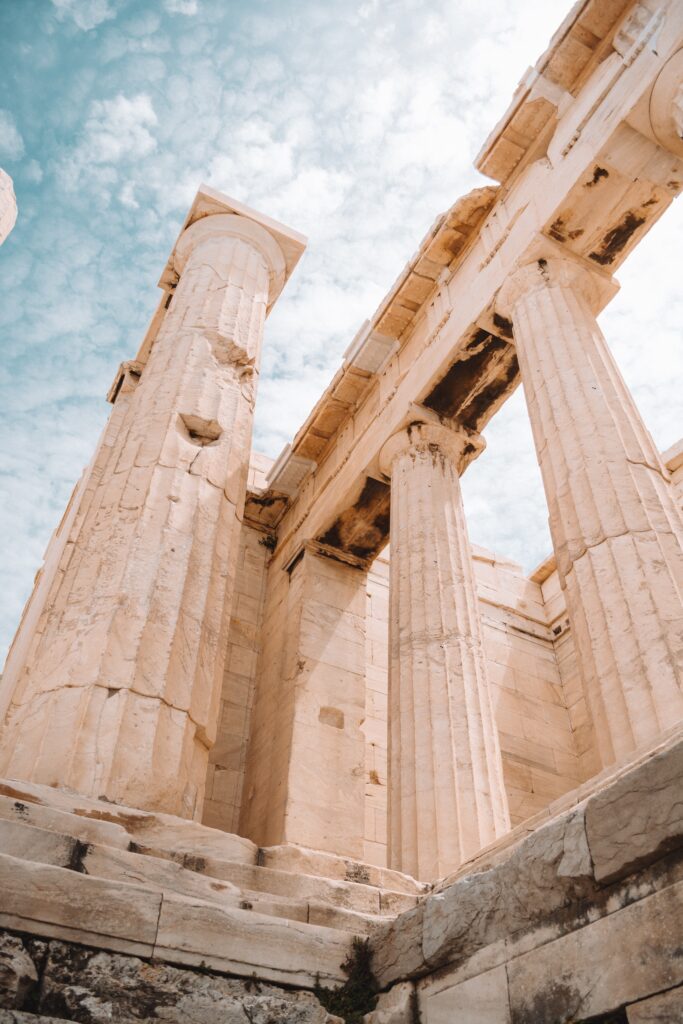
The Greek pantheon of gods and goddesses is a diverse and complex assembly of deities who played significant roles in ancient Greek mythology and religion. Here’s an overview of some of the most prominent members of the Greek pantheon:
Zeus (Jupiter)
The king of the gods and ruler of Mount Olympus. Zeus is associated with thunder and the sky. He was often depicted with a lightning bolt, and his authority extended over both gods and mortals.
Hera (Juno)
The queen of the gods and Zeus’s wife. She presided over marriage, family, and childbirth. Hera was known for her jealousy and her role as a protector of married women.
Poseidon (Neptune)
The god of the sea, earthquakes, and horses. Poseidon’s realm was the ocean, and he was known for wielding a trident, which could shake the earth and create storms at sea.
Athena (Minerva)
The goddess of wisdom, warfare, and strategy. Athena emerged fully grown and armored from Zeus’s forehead. She was a patron of heroes and known for her strategic acumen.
Apollo
The god of music, poetry, prophecy, and healing. Apollo was a versatile deity, associated with the arts, as well as oracles like the one at Delphi.
Artemis (Diana)
Apollo’s twin sister, Artemis was the goddess of the hunt, wilderness, and childbirth. She was often depicted with a bow and arrow and was a protector of young girls.
Aphrodite (Venus)
The goddess of love, beauty, and desire. Aphrodite was born from the sea foam and was associated with both passionate love and physical beauty.
Ares (Mars)
The god of war and bloodshed. Ares was impulsive and represented the brutal aspects of warfare. He was not as highly regarded as Athena, the goddess of strategic warfare.
Hermes (Mercury)
The messenger god is associated with communication, travel, and commerce. Hermes was known for his cunning and quick wit. He guided souls to the afterlife and was a protector of travelers.
Dionysus (Bacchus)
The god of wine, revelry, and the theater. Dionysus was associated with ecstasy and the celebration of life. He was often accompanied by a retinue of maenads.
Demeter (Ceres)
The goddess of agriculture, fertility, and the harvest. Demeter’s sorrow over the abduction of her daughter Persephone led to the changing seasons.
Hades (Pluto)
The god of the underworld and ruler of the dead. Hades was not typically considered one of the Olympian gods, as his domain was separate from Mount Olympus.
Hestia (Vesta)
The goddess of the hearth and home. Hestia was a peaceful deity, and her flame represented the heart of the home and the city.
Hephaestus (Vulcan)
The god of blacksmiths, craftsmen, and fire. Hephaestus was known for creating divine weapons and crafting various artifacts.
These are some of the principal gods and goddesses in Greek mythology, but there were many more minor deities and divine beings who played roles in specific stories and aspects of ancient Greek life. The Greek pantheon reflects the multifaceted nature of human experience, with each deity representing different facets of existence, from love and war to wisdom and the natural world.
